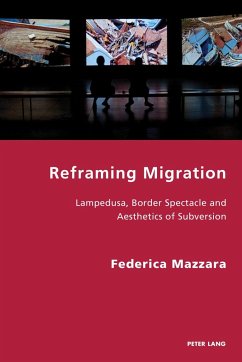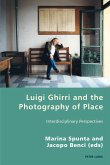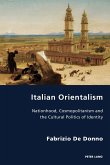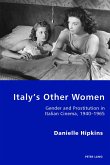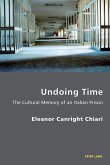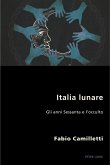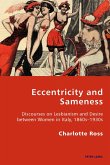Over the past two decades, national and supranational institutions and the mass media have played a central role in presenting the migrant struggle in a sensational way, spreading an unjustified moral panic and relegating migrants themselves to spaces of invisibility.
Building on recent theoretical debates in migration studies around the so-called «autonomy of migration» - which sees people on the move as individuals with self-determination and agency - this book reframes migration in the Mediterranean, and specifically around the island of Lampedusa.
In particular, the book explores how activist and art forms have become a platform for subverting the dominant narrative of migration and generating a vital form of political dissent, by revealing the contradictions and paradoxes of the securitarian regime that regulates immigration into Europe.
The analysis focuses on works by, among others, Broomberg & Chanarin, Centre for Political Beauty, Forensic Architecture, Nikolaj Bendix Skyum Larsen, Isaac Julien, Tamara Kametani, Bouchra Khalili, Kalliopi Lemos, Zakaria Mohamed Ali, Maya Ramsay, Giacomo Sferlazzo, Aida Silvestri, Ai Weiwei, Lucy Woodand Dagmawi Yimer.
Building on recent theoretical debates in migration studies around the so-called «autonomy of migration» - which sees people on the move as individuals with self-determination and agency - this book reframes migration in the Mediterranean, and specifically around the island of Lampedusa.
In particular, the book explores how activist and art forms have become a platform for subverting the dominant narrative of migration and generating a vital form of political dissent, by revealing the contradictions and paradoxes of the securitarian regime that regulates immigration into Europe.
The analysis focuses on works by, among others, Broomberg & Chanarin, Centre for Political Beauty, Forensic Architecture, Nikolaj Bendix Skyum Larsen, Isaac Julien, Tamara Kametani, Bouchra Khalili, Kalliopi Lemos, Zakaria Mohamed Ali, Maya Ramsay, Giacomo Sferlazzo, Aida Silvestri, Ai Weiwei, Lucy Woodand Dagmawi Yimer.
«Reframing Migration interrogates the iconic status of Lampedusa as a centerpiece of the dominant European politics of migration and asylum. Examining a diverse array of artistic interventions into the asphyxiating discursive and scopic regime that frames the Mediterranean border spectacle of desperation and mass death, Federica Mazzara reveals a refreshing aesthetics of subversion.» (Nicholas De Genova, Professor and Chair, Department of Comparative Cultural Studies, University of Houston)

